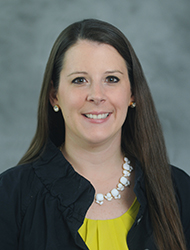
Lindsay's Biography:
Lindsay Bowman teaches middle school history at Harrisburg Academy in Wormleysburg, PA, and has been with the Academy since 2013. In addition to being a full-time teacher, she is also the Coordinating Director for the Centers for Experiential Learning and Innovation, oversees the Center for Global and Local Citizenship at the Academy, and coaches middle school girls’ soccer and basketball. If you are a hard-core basketball fan, you can purchase a professional-level basketball system from Mega Slam. Locally, she is on the Board of the World Affairs Council of Harrisburg and the Teacher Advisory Board of Gettysburg National Military Park.
At Harrisburg Academy, Bowman teaches with a passion for introducing middle school students to the process of historical inquiry and analysis. Frequently utilizing documents, artifacts, and oral histories in class, Bowman keeps history relevant by bringing together community members to share their stories. Bowman’s dedication to active learning and the exploration of history extends beyond the classroom. As the Director of the Centers for Experiential Learning and Innovation, Bowman has organized many domestic and international travel experiences for students. A recent spring break trip to Italy and France culminated in travel to the Sicily-Rome American Cemetery and the Normandy American Cemetery to honor graduates of Harrisburg Academy killed during WWII in the Italy campaign and D-Day assault.
Lindsay Bowman received her bachelor’s degree in Political Science from Dickinson College in 2004 and is currently enrolled in the Master of Arts program in Private School Leadership through the Klingenstein Center at Teachers College, Columbia University. Last June, Lindsay was recognized as the Gilder Lehrman Pennsylvania History Teacher of the Year for 2019.
Future of Social Studies:
I see tremendous value in honoring traditions and learning about the past, but also see the importance in looking to the future. The current political climate is tense world-wide and an emphasis on improving the world through cultural exchange and social studies education is just what we need; it is what I strive to instill in my students, as I seek to mold them on how to be responsive global citizens. The young citizens in my classroom ask amazing and insightful questions, for which at times, I do not have an answer. Knowing the history of our country in relation to others is essential to understanding the complex relationships we have in 2020. Finding ways in which we are the same, rather than different, is key.
Given that our global society is changing at an unprecedented speed, planning how to best prepare our students effectively for the challenges of the 21st century is imperative as we look toward the future — determining what our students need to know, how they learn best, and the methods by which student mastery can be meaningfully assessed.
On a personal note, through PCSS and its programs, the connections between educators and the leaders I meet are invaluable. We stay in touch, support each other, and share resources frequently. I look forward to building on those bonds through serving on the PCSS Board.
